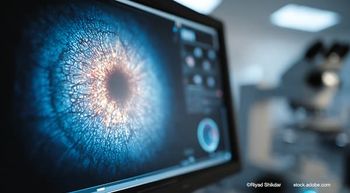
Cautious welcome for new glaucoma guidelines
New guidelines, designed to improve the management and diagnosis of chronic open angle glaucoma (COAG) and ocular hypertension have received a cautious commendation from the ophthalmic community.
New guidelines, designed to improve the management and diagnosis of chronic open angle glaucoma (COAG) and ocular hypertension have received a cautious commendation from the ophthalmic community. However, there are concerns about implementation.
While the guidelines provide much-needed clarity on the diagnosis and management of glaucoma, implementation of the guidance will mean hundreds of thousands of additional hospital visits, most of which will be unnecessary. Optometrists are well- placed to provide a solution to this problem, with appropriate training, reported Geoff Robertson, AOP professional advisor.
The guidelines, issued by NICE contain a key recommendation that patients should be formally diagnosed by a healthcare professional with a specialist qualification using techniques which few optometrists currently perform (applanation tonometry, gonioscopy and pachymetry). In order to comply with the new guidelines, optometrists will have to refer these patients to a specialist for a formal diagnosis and monitoring. This would normally mean the patient would need to be referred to hospital rather than being seen in the community.
According to The Association of British Dispensing Opticians, The Association of Ophthalmologists, The Association of Optometrists, The College of Optometrists, The Federation of Ophthalmic and Dispensing Opticians and The General Optical Council this would represent an increase of 10% over the 5 million ophthalmic outpatients episodes provided in 2007-8. The General optical Council said the Hospital Eye Service is a highly specialised part of the eye care sector but it will struggle to cope with such a large increase with inevitable consequences for waiting lists and appointment intervals. It may that under the Any Willing Provider programme ophthalmologists working in the community would be able to take on some of any extra workload but this will probably not solve the problem.
Newsletter
Get the essential updates shaping the future of pharma manufacturing and compliance—subscribe today to Pharmaceutical Technology and never miss a breakthrough.




























